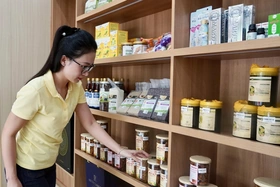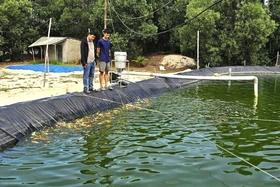4buaIFRSJjjhu6plZU9RY8OJMMOpODtR4bucROG6ueG7qmEiUsOJxJEwUuG7qmNjODA7ZVIgMC3DqTsmIFIwYVJjxJHDoTnDocOpMGEiUjc74buLUmPEkcOhP+G6uSbDqWXhu5ovIFThu5zhu5pjUiY44buqZWVPUWPhu6074buqP1Hhu5xFJjA7YSY7UuG7qmE/UsOJOyYgYcOhOMOhIuG7i1Ig4buqaTtSY8OhZTDDqTBpOzjhu4tSMDlj4buqJsOpOz9S4buqODhSY8SRw6E/4bq5JsOpMMOhYVJlOybDqcOhxJFl4buSUibDoWHDqcSRMCrhurnDqTBhIlLDqcOhUsOpIDtSMGFhw6Fp4buqw6kww6FhUsOhXVJjxJHDoT/hurkmw6kww6FhUsOhxJEi4buqYTB64buqw6kww6FhUjk7w6kgw6E/ZVLDqcOhw63hu6rEkT9lUjBhJsSRO+G7qmU7P1JjxJHDoT/hurkmw6kwaTDDqeG7i+G7klJk4bq54buqODDDqeG7i+G7klLhu6phP1I7XV0wJjA7YSbhu4tSw60gMDg7UuG7qj/hu6pjw6kwYSJSw6nDoVImODA54buqw6k7UiYg4buqYSI74buYUsOJIDBlUiDhu6plUmM44buq4buLOz9S4buqUmUwImEwXTAm4buqYcOpUsSRw6E4O1IwYVLEkTtlw6nEkeG6uSbDqeG6ucSRMGEiUsOpIDtS4buqIsSRMCbhurk4w6nhurnEkeG7qjhSZTsmw6nDocSRUsOpw6HDreG7qsSRP2VSIDAiIDvEkVLhu6o/Pzs/Umnhu6o44bq5O1Lhu6phP1Jl4bq5ZcOp4buqMGHhu6oqODtSPztpOzjDoWM5O2HDqeG7mFLhu69hUsSROyY7YcOpUuG7izvhu6rEkWXhu5JSROG6ueG7qmEiUsOJxJEwUmPEkcOhaTBhJjtSIOG7qmVS4buqJsOpMGk7OOG7i1Lhu6pjYzgwOz9SIDAtw6k7JiBSw6nDoVLDqSA7Uj87aTs4w6FjOTthw6lSw6FdUjc74buLUmPEkcOhP+G6uSbDqWXhu5jhu5ovY+G7nOG7mmNSJjjhu6plZU9RY+G7n8OhP+G7i1Hhu5zDgWk7xJFSw6kgO1Jj4buqZcOpUj87JuG7qj874buSUmHhurk5O8SRw6HhurllUmHhu6rDqTDDoWHhu6o4UuG7qmE/UmPEkcOhaTBhJjDhu6o4UsSRO2U74buqxJEmIFLhu6phP1LDqTsmIGHDoTjDoSLhu4tS4buqY2M4MCbhu6rDqTDDoWFSY8SRw6EixJHhu6o5ZVLhu6phP1JjxJHDoTY7JsOpZVIg4buqaTtSKjs7YVIwOWM4Ozk7YcOpOz9SOMOhJuG7qjg44buL4buYUsOJIDtlO1IwYTDDqTDhu6rDqTBpO2VSIOG7qmk7UmPEkTA54buqxJEwOOG7i1Jl4bq5Y2PDocSRw6k7P1LDqSA7Uj87aTs4w6FjOTthw6lSw6FdUjc74buLUuG7qmE/UuG7qj9p4buqYcOp4buqIjvDoeG6uWVSOMOhJuG7qjhSY8SRw6E/4bq5JsOpZeG7klJlMCJhMF0wJuG7qmHDqTjhu4tSJsOhYcOpxJEwKuG6ucOpMGEiUsOpw6FSw6kgO1Jlw6EmMMOhLTsmw6Fhw6E5MCZSPztpOzjDoWM5O2HDqVLDoV1Sw6kgO1JjxJHDoWkwYSY74buSUjBhJjjhurk/MGEiUsOpIDtS4buqIsSRMCbhurk4w6nhurnEkeG7qjjhu5JSXcOhxJE7ZcOpxJHhu4vhu5JS4buqYT9SXTBlIDvEkTA7ZVJlOybDqcOhxJFl4buY4buaL2Phu5zhu5pjUiY44buqZWVPUWPhu5/DoT/hu4tR4buc4bu1O+G7i1ImxJHDoWNlUmPEkcOhaTA/MGEiUsSR4buqw61SOeG7qsOpO8SRMOG7qjhlUl3DocSRUsOpIDtSY8SRw6EmO2VlMGEiUjBhP+G6uWXDqcSR4buLUjBhJjjhurk/O1Imw6FdXTs74buSUsSR4bq5Kio7xJHhu5JS4buqYT9Sw6kwOSo7xJHhu5hS4buhxJHDoWNlUsOtMMOpIFImw6E5YzvDqTDDqTBpO1Lhu6o/aeG7qmHDqeG7qiI7ZVLhu6phP1LEkTsiMMOhYeG7qjhSZWM7JjDhu6o4w6kwO2VSMGEmOOG6uT87UmM7Y2M7xJHhu5JSXcSR4bq5MMOpUsOpxJE7O2Xhu5JSOTs/MCYwYeG7qjhSYzjhu6phw6ll4buSUuG7qmE/UiAwIiAtZOG6ueG7qjgww6nhu4tSxJEwJjvhu5hSw4kgO1JjxJEwOeG7qsSR4buLUjgwaTtlw6nDoSY3UsOtMMOpIFImw6E5YzvDqTDDqTBpO1Lhu6o/aeG7qmHDqeG7qiI7ZVIwYVLDqSA7UmPEkcOhaTBhJjtSMGEmOOG6uT87Uibhu6rDqcOpODtS4buqYT9SZSDEkTA5Y+G7mFLDiSDEkcOh4bq5IiBSw6kgO2U7UmPEkcOhIsSR4buqOWVS4buqYT9SY8SRw6E2OybDqWXhu5JSZeG7ql07UuG7qmE/UmXhurllw6nhu6owYeG7qio4O1JjxJHDoT/hurkmw6kww6FhUmPEkcOhJjtlZTtl4buSUmXhurkmIFLhu6plUsOhxJEi4buqYTAmUl3hu6rEkTkwYSLhu5JSYeG7qsOp4bq5xJHhu6o4Uibhurk4w6kwaeG7qsOpMMOhYeG7klLhu7FtQ+G7klLhu6phP1Jdw6HDoT9SZeG7ql07w6nhu4tSY8SRw6HDqcOhJsOhOGXhu5JSIOG7qmk7Uio7O2FSY8SRw6E5w6HDqTs/4buYUsOJIDtlO1I7XV3DocSRw6llUiDhu6ppO1IwOWPEkcOhaTs/UmPEkcOhP+G6uSbDqTDDoWFSJuG7qmPhu6omMMOp4buLUuG7qmE/Ujk7w6kgw6E/ZeG7klLDqcSR4buqYWUww6kww6FhMGEiUl3EkcOhOVJlOeG7qjg4LWUm4buqODtSY8SRw6E/4bq5JsOpMMOhYVLDqcOhUjjhu6rEkSI7LWUm4buqODtSJsOhOTk7xJEmMOG7qjhSY8SRw6E/4bq5JsOpMMOhYeG7klI7ZcOp4buqKjgwZSAwYSJSaeG7qjjhurk7UiYg4buqMGFSODBhN+G7qiI7ZeG7klLhu6phP1IixJHhu6o/4bq54buqODjhu4tSKuG6uTA4PzBhIlLDqSA7UirEkeG7qmE/UsOhXVJE4bq54buqYSJSw4nEkTBS4buqIsSRMCbhurk4w6nhurnEkeG7qjhS4buqYT9SOTs/MCYwYeG7qjhSY8SRw6E/4bq5JsOpZVJl4bq5JiBS4buqZVJF4buqUuG7ueG6uVLDocSRJiAwP2Xhu5JSReG7qlLhu7nhurlSZcOpxJHhu6rDrSo7xJHEkTA7ZeG7klJF4buqUuG7ueG6uVImw6HEkT/hu4smO2Nl4buSUsOJxJHhu6o44buqaeG7qmEi4buSUuG7oeG7qiLhu6o4MOG7klLhu6HDoWFS4buhw6FSNjDhu6rDoSLhurk44buqYeG7klJJMGEgUuG7tzBhIFJjO2NjO8SR4buSUsOhxJEi4buqYTAmUsSRMCY74buSUuG7qmE/UuG7tSA7UkXhu6phIFImw6FdXTs74buY4buaL2Phu5zhu5pjUiY44buqZWVPUWPhu5/DoT/hu4tR4buc4buaMDkiUiY44buqZWVPUTDhu6E7YcOpO8SRUVJlxJEmT1Egw6nDqWNlw5QvLybhu5gq4buqw6Fk4bq54buqYSLDqcSRMOG7mGlhLz87ZTfDqcOhYy9hO8OtZS9Vw5lV4bukL1RUw5k/VFVTVeG7pFTDmcOp4bumw5nhu6g4VFMtIMOhO1RU4buo4buYw607KmNRUuG7qjjDqU9RROG6ueG7qmEiUsOJxJEwUuG7qmNjODA7ZVIgMC3DqTsmIFIwYVJjxJHDoTnDocOpMGEiUjc74buLUmPEkcOhP+G6uSbDqWVRUi/hu5zhu5ovY+G7nOG7mmNSJjjhu6plZU9RY+G7oeG7qmPDqTDDoWFR4buccDtpOzjDoWM5O2HDqVLDoV1S4buqYVLDocSRIuG7qmEwJlLEkTAmO1Jd4buqxJE5MGEiUjnDoT87OFIwYVLDicSRMDvhurlSQyDDoWEiUnAwZcOpxJEwJsOp4buYUkMgw6HDqcOhw5RSw4nhu5ht4buY4bu54buaL2Phu5zhu5pjUiY44buqZWVPUWPhu5/DoT/hu4tR4bucw4kgO1Lhu6pjYzgwJuG7qsOpMMOhYVLDoV1SZSYwO2EmO1Lhu6phP1LDqTsmIGHDoTjDoSLhu4tSMGFSY8SRw6E/4bq5JsOpMMOhYVIg4buqZVJdw6Em4bq5ZTs/UsOhYVIwYWHDoWnhu6rDqTBhIlLhu6phP1IwOWPEkcOhaTBhIlImxJHDoWNS4buqYT9SODBpO2XDqcOhJjdSaeG7qsSRMDvDqTA7ZeG7klImw6Fhw6nEkTAq4bq5w6kwYSJSw6nDoVI7YSDhu6phJjs/UmPEkcOhP+G6uSbDqTBpMMOp4buLUuG7qmE/UmThurnhu6o4MMOp4buLUsOhXVI3O+G7i1I4w6Em4buqOFJjxJHDoT/hurkmw6ll4buYUnJdXcOhxJHDqWVSIOG7qmk7Uio7O2FSPzDEkTsmw6k7P1LDqcOhw63hu6rEkT9lUjtdXTsmw6kwaTs44buLUsSRO2U74buqxJEmIDBhIuG7klLhu6pjYzjhu4swYSLhu5JS4buqYT9Sw6nEkeG7qmFlXTvEkcSRMGEiUmUmMDthw6kwXTAmUuG7qmE/UsOpOyYgYcOhOMOhIjAm4buqOFLhu6o/aeG7qmEmOzk7YcOpZVLDqcOhUmPEkeG7qibDqTAm4buqOFJjxJHDoT/hurkmw6kww6FhUuG7qmE/Uj/hu6owOOG7i1I4MF074buSUiA7OGMwYSJSOMOhJuG7qjhSxJE7ZTA/O2HDqWVSMGEmxJE74buqZTtSw6kgOzDEkVIwYSbDoTk7UuG7qmE/UjA5Y8SRw6FpO1LDqSA7MMSRUjgwaTBhIlJlw6nhu6phP+G7qsSRP2Xhu5JSw6kg4bq5ZVImw6Fhw6nEkTAq4bq5w6kwYSJSY8OhZTDDqTBpOzjhu4tSw6nDoVI4w6Em4buqOFJlw6EmMMOhLTsmw6Fhw6E5MCZSPztpOzjDoWM5O2HDqeG7mOG7mi9j4buc4buaY1ImOOG7qmVlT1Fj4bufw6E/4buLUeG7nMOJIDtS4buqP8OhY8OpMMOhYVLDoV1S4buqP2nhu6phJjs/UmUmMDthw6kwXTAmUuG7qmE/UsOpOyYgYcOhOMOhIjAm4buqOFJjxJHhu6omw6kwJjtl4buSUmPhu6rEkcOpMCbhurk44buqxJE44buLUiAwIiBSw6k7JiBhw6E4w6Ei4buLUjBhUmPEkcOhP+G6uSbDqTDDoWHhu5JSIOG7qmVSZTs7YVJlMCJhMF0wJuG7qmHDqVJjxJHDoSLEkTtlZVLDrTDDqSBSZcOhOOG6ucOpMMOhYWVSZeG6uSYgUuG7qmVSIsSROzthIMOh4bq5ZTtl4buSUmE7w6lSIMOh4bq5ZTtl4buSUjtdXTAmMDthw6lSMMSRxJEwIuG7qsOpMMOhYeG7klIg4buLP8SRw6Fjw6FhMCZl4buSUjnhurk4w6kwLWXDqeG7qiI7UmUgxJEwOWNSXeG7qsSROTBhIuG7klLhu6phP1LDqTBlZeG6uTstJuG6uTjDqeG6ucSROz9SXcOhxJE7ZcOpxJHhu4tSZTs7PzgwYSJl4buSUsOpIDvEkTsq4buLUirDocOhZcOpMGEiUmPEkcOhP+G6uSbDqTBpMMOp4buL4buSUmThurnhu6o4MMOp4buL4buSUuG7qmE/Ujsmw6Fhw6E5MCZSO11dMCYwO2Em4buL4buY4buaL2Phu5zhu5pjUiY44buqZWVPUWPhu5/DoT/hu4tR4buc4bu1O+G7i1LDqTsmIGHDoTjDoSIwO2VSw6FdUsOpIDtS4burw6HhurnEkcOpIFLhu69hP+G6uWXDqcSRMOG7qjhSxJA7acOhOOG6ucOpMMOhYVIg4buqaTtSKjs7YVI7XV07JsOpMGk7OOG7i1Lhu6pjYzgwOz9SMGFS4buqIsSRMCbhurk4w6nhurnEkTvhu5JSw60ww6kgUjvDrGM7xJEwOTthw6nhu6o4UmPEkcOhP+G6uSbDqTDDoWFSOcOhPzs4ZVJdw6Em4bq5ZTBhIlLDoWFSIDAiIC1p4buqOOG6uTtSXTjDocOtO8SRZVLhu6phP1JjxJHDoSY7ZWU7P1IgO8SRKuG7qjhSY8SRw6E/4bq5JsOpZeG7mFLDiTsmIGHDoTjDoSIwJuG7qjhS4buqP2nhu6phJjs5O2HDqWVSMGFSJuG7qsOpw6k4O1IqxJE7Oz8wYSJSIOG7qmk7Uio7O2FSMDljODs5O2HDqTs/UsOpw6FSIDs4Y1Imw6Hhu6plw6nhu6o4UsSRO2UwPzthw6llUuG7ql1dOybDqTs/Uirhu4tSO2FpMMSRw6FhOTthw6nhu6o4UjBhJjA/O2HDqWXhu5jhu5ovY+G7nOG7mmNSJjjhu6plZU9RY+G7n8OhP+G7i1Hhu5xFJjA7YcOpMF0wJlLhu6phP1LDqTsmIGHDoTjDoSIwJuG7qjhS4buqP2nhu6phJjtlUiDhu6ppO1Lhu6o4ZcOhUio7O2FS4bq5ZTs/UsOpw6FSY8SRw6E/4bq5JjtS4buqIsSRMCbhurk4w6nhurnEkeG7qjhSOTAmxJHDoSoww6E4w6EiMCbhu6o4UmPEkcOhP+G6uSbDqWVSZeG6uSYgUuG7qmVS4buhw6E5Y8OhLUTDieG7ueG7r+G7oeG7klLDicSRMCYgw6EtQ2U74bq54buSUkEww6nEkcOhRMOJ4bu54buv4buh4buSUkM7xJFdOybDqS1Ew4nhu7nhu6/hu6Hhu5JS4bufMMOhLUTDieG7ueG7r+G7oeG7klLhu6phP1JDxJHDoS1Ew4nhu7nhu6/hu6Hhu5hSbT8/MMOpMMOhYeG7qjg44buL4buSUjtdXcOhxJHDqWVSIOG7qmk7Uio7O2FSOeG7qj87UsOpw6FSxJE7ZTvhu6rEkSYgUuG7qmE/UsOpxJHhu6phZV07xJFSIDAiIC3hu4swOzg/4buSUiAwIiAtZOG6ueG7qjgww6nhu4vhu5JSJsOhOWM7w6kww6kwaTvhu5JS4buqYT9SJjgwOeG7qsOpOy3hu6o/4buqY8OpMGk7UibEkcOhY1Lhu6phP1I4MGk7ZcOpw6EmN1Jp4buqxJEwO8OpMDtlUjBhw6nDoVJjxJHDoT/hurkmw6kww6Fh4buY4buaL2Phu5zhu5pjUiY44buqZWVPUWPhu5/DoT/hu4tR4buc4bu3w6Em4buqOFLhu6rhurnDqSDDocSRMMOpMDtlUiDhu6ppO1I7XV07JsOpMGk7OOG7i1IwOWM4Ozk7YcOpOz9SJsSRw6FjUuG7qmE/UmU74buqZcOhYeG7qjhSZcOpxJHhurkmw6nhurnEkTtSJiDhu6phIjtl4buSUsOtMMOpIFI44buqxJEiOy1dMDs4P1JjxJHDoSLEkeG7qjllUuG7qmE/UmPEkcOhP+G6uSbDqTDDoWFSODBhN+G7qiI7UmPEkcOhNjsmw6llUuG7izA7OD8wYSJSY8SR4buqJsOpMCbhu6o4UsSRO2Xhurk4w6ll4buYUuG7rTAiIC3DqTsmIOG7klJl4buqXTvhu5JSw6HEkSLhu6phMCbhu5JS4buqYT9SSTA7w6nhu7FtQ1Lhu6oixJEwJuG6uTjDqeG6ucSR4buqOFJjxJHDoT/hurkmw6kww6FhUiDhu6plUjBhJsSRO+G7qmU7P+G7klLDrTDDqSBSOeG7qmHhu4tSY8SRw6E/4bq5JsOpZVLEkTsmOzBpMGEiUsOpxJHhu6o/Oznhu6rEkTdlUl3EkcOhOVLDqSA7UkHhu6rDqTDDoWHhu6o4UsOBXV0wJjtSw6FdUuG7r2HDqTs4ODsmw6nhurnhu6o4UkPEkcOhYzvEkcOp4buL4buY4buaL2Phu5zhu5pjUiY44buqZWVPUWPhu5/DoT/hu4tR4buc4bu3MGk7ZcOpw6EmN1Jd4buqxJE5MGEiUjk7w6kgw6E/ZVIg4buqaTtSZSAwXcOpOz9SXcSRw6E5UmU54buqODgtZSbhu6o4O1LDqcOhUibDoWEmO2HDqcSR4buqw6k7P1Jd4buqxJE5UsOhYzvEkeG7qsOpMMOhYWXhu5JSMGEmw6HEkWPDocSR4buqw6kwYSJSOcOhPzvEkWFSKuG7qsSRYWVS4buqYT9SO2ThurkwYzk7YcOp4buYUuG7t+G7qsSRIjstZSbhu6o4O1Jdw6HEkTtlw6nEkeG7i1I4MGE3Oz9Sw6nDoVJl4bq5ZcOp4buqMGHhu6oqODtSXcOhxJE7ZcOpUjnhu6ph4buqIjs5O2HDqVImO8SRw6kwXTAm4buqw6kww6FhUuG7luG7q0Xhu6HGoFIg4buqZVIqOzthUmPEkcOhOcOhw6k7P+G7klLhu6phP1IgMCIgLcOpOyYgUuG7qmNjODAm4buqw6kww6FhZVIwYVJdMGUgO8SR4buLUjvDrGM4w6Eww6nhu6rDqTDDoWFSIOG7qmk7Uio7O2FSO2Eg4buqYSY7P+G7klI7ZWM7JjDhu6o4OOG7i1IwYVJjw6Flw6ktIOG7qsSRaTtlw6lSY8SRO2U7xJFp4buqw6kww6Fh4buY4buaL2Phu5zhu5pjUiY44buqZWVPUWPhu5/DoT/hu4tR4buc4burMGUgO8SR4buLUjBhXcSR4buqZcOpxJHhurkmw6nhurnEkTtS4buqYT9SMMSRxJEwIuG7qsOpMMOhYVJjxJHDoTY7JsOpZVIg4buqaTtSJsOhYcOpMGHhurk7P1LDqcOhUsSROyY7MGk7UjBhaTtlw6k5O2HDqVLhu6phP1LhurljIsSR4buqPztl4buYUsOJIDtSY8SRw6FpMGEmO1Ig4buqZVI7YeG7qibDqTs/UmHhurk5O8SRw6HhurllUmPDoTgwJjA7ZVLhu6phP1JjxJHDoTY7JsOpZVLDqcOhUj87aTs4w6FjUjc74buLUjjDoSbhu6o4UmPEkcOhP+G6uSbDqWXhu5JS4buqJiAwO2kwYSJSY8OhZTDDqTBpO1LDoeG6ucOpJsOhOTtl4buYUm1lUuG7qlLEkTtl4bq5OMOp4buSUsOpIDtS4buqIsSRMCbhurk4w6nhurnEkeG7qjhSZTsmw6nDocSR4oCZZVIixJHDocOtw6kgUsSR4buqw6k7UiDhu6plUsSROznhu6owYTs/UmXDqeG7qio4O+G7klJlMCJhMF0wJuG7qmHDqTjhu4tSJsOhYcOpxJEwKuG6ucOpMGEiUsOpw6FSw6kgO1I4w6Em4buqOFIixJHDoWVlUsSROyIww6Fh4buqOFI/w6E5O2XDqTAmUmPEkcOhP+G6uSbDqVLhu5bhu7HEkHBDxqDhu5jhu5ovY+G7nOG7mmNSJjjhu6plZU9RY+G7n8OhP+G7i1Hhu5zhu69hUsOpIDtSXeG6ucOp4bq5xJE74buSUsOpIDtSY8SRw6FpMGEmO+KAmWVSZSYwO2EmO1Lhu6phP1LDqTsmIGHDoTjDoSLhu4tSZTsmw6nDocSRUsOtMDg4Ul3DoSbhurllUsOhYVLDqeG7qmU3ZVLhu6phP1Jlw6E44bq5w6kww6FhZVLDqcOhUuG7qmNjOOG7i1JlJjA7YSY7UuG7qmE/UsOpOyYgYcOhOMOhIuG7i1IwYVJjxJHDoT/hurkmMGEiUjc74buLUjjDoSbhu6o4UmPEkcOhP+G6uSbDqWXhu5JSMGEmOOG6uT8wYSJSxJE7ZTvhu6rEkSYgMGEi4buSUsOpO2XDqTBhIuG7klJlOzg7JsOpMGEi4buSUuG7qmE/UuG6uWUwYSJSIDAiIC3hu4swOzg/4buSUiAwIiAtZOG6ueG7qjgww6nhu4tSJsSRw6FjUuG7qmE/UjgwaTtlw6nDoSY3Umnhu6rEkTA7w6kwO2Xhu5hSw4kgO1I7OWMg4buqZTBlUsOtMDg4Uio7UsOhYVLhu6pjYzjhu4swYSJS4buqYT9Sw6nEkeG7qmFlXTvEkcSRMGEiUmUmMDthw6kwXTAmUuG7qmE/UsOpOyYgYcOhOMOhIjAm4buqOFLhu6o/aeG7qmEmO2Xhu5JSO8OsY+G7qmE/MGEiUjtdXTsmw6kwaTtSYTvDrVI5w6E/OzhlUsOpw6FSOTs7w6lSY8SR4buqJsOpMCbhu6o4Uj87OeG7qmE/ZVLhu6phP1LDqSA7UmU7JsOpw6HEkeKAmWVSZeG6uWXDqeG7qjBh4buqKjg7Uj87aTs4w6FjOTthw6lSIsOh4buqOGXhu5JSxJE7P+G6uSYwYSJSMGFj4bq5w6lSJsOhZcOpZeG7klIwYSbEkTvhu6plMGEiUmnhu6o44bq5Oy3hu6o/Pzs/UmM7xJFS4bq5YTDDqVLhu6rEkTvhu6rhu5JS4buqYT9SOzg7aeG7qsOpMGEiUjc74buLUuG7qiLEkTAm4bq5OMOp4bq5xJHhu6o4UmPEkcOhP+G6uSbDqWVSw6nDoVIwOWPEkcOhaTtSOMOhJuG7qjhSMGEmw6E5O2Xhu5hSw4kgO1Jdw6Em4bq5ZVLDrTA4OFIqO1LDoWFSPztpOzjDoWMwYSJSIDAiIC3DqTsmIFLhu6oixJEwJuG6uTjDqeG6ucSRO1IwYVImxJHDoWNSJuG6uTjDqTBp4buqw6kww6Fh4buSUuG7qmEwOeG7qjhSIOG6uWUq4buqYT/EkeG7i+G7klLhu6pk4bq54buqJuG6uTjDqeG6ucSRO+G7klLhu6phP1Jdw6HEkTtlw6nEkeG7i+G7mOG7mi9j4buc4buaY1ImOOG7qmVlT1Fj4bufw6E/4buLUeG7nEXhurljY8OhxJHDqVJdw6HEkVIgMCIgLcOpOyYgUuG7qiLEkTAm4bq5OMOp4bq5xJHhu6o4UmPEkcOhNjsmw6ll4buSUirhurkwOD8wYSJSY8SRw6E/4bq5JsOpMMOhYVLhu6phP1Imw6FhZeG6uTljw6kww6FhUjgwYTfhu6oiO1ImIOG7qjBhZeG7klLhu6phP1I7XV07JsOpMGk7OOG7i1IwOWM4Ozk7YcOpMGEiUjvDrDBlw6kwYSJSY8OhODAmMDtlUuG7qmE/UmPEkcOhNjsmw6llUsOtMDg4UibDoWHDqTBh4bq5O+G7mFJtw6nDqTthw6kww6FhUsOtMDg4Uio7UiIwaTthUsOpw6FSw6nEkeG7qjBhMGEiUuG7qmE/Uj87aTs4w6FjMGEiUiDhurk54buqYVLEkTtlw6HhurnEkSY7ZVJdw6HEkVLDqSA7UuG7qiLEkTAm4bq5OMOp4bq5xJHhu6o4UmU7JsOpw6HEkeG7klJj4buqxJHDqTAm4bq5OOG7qsSROOG7i1Iq4bq5MDg/MGEiUuG7qlLDqTvhu6o5UsOhXVI/Oz8wJuG7qsOpOz9S4buqYT9Sw6k7JiBhMCbhu6o4OOG7i1JlNzA4ODs/Ujg74buqPzvEkWXhu5hScl1dw6HEkcOpZVLDrTA4OFIqO1I/MMSROybDqTs/UsOpw6HDreG7qsSRP2VS4buqP2nhu6phJjBhIlIqMMOhw6k7JiBhw6E4w6Ei4buLUuG7qiYmw6HEkT8wYSJSw6nDoVLDqSA7UmPEkcOhaTBhJjvigJllUmM44buqYeG7klI7YWXhurnEkTBhIlI5w6E/O8SRYVJjxJHDoT/hurkmw6kww6FhUuG7qmE/Ujnhu6ph4buqIjs5O2HDqVJjxJHhu6omw6kwJjtlUuG7qjgwImFSw60ww6kgUsSROyIww6Fh4buqOFLhu6phP1IwYcOpO8SRYeG7qsOpMMOhYeG7qjhS4buqIsSROzs5O2HDqWXhu5JSMGHDqTsixJHhu6rDqTBhIlLDqSA7UuG7qiLEkTAm4bq5OMOp4bq5xJHhu6o44buSUl3DocSRO2XDqcSR4buL4buSUuG7qmE/Ul0wZSA7xJHhu4tSZTsmw6nDocSRZVIwYcOpw6FSYeG7qsOpMMOhYeG7qjhSPztpOzjDoWM5O2HDqVLDqcSRO2E/ZeG7klLhu6phP1Jlw6nhu6oqMDgwejBhIlI7YcOpxJHhu4tSMGHDqcOhUiI4w6Eq4buqOFI54buqxJE3O8OpZeG7mOG7mi9j4buc4buaY1ImOOG7qmVlT1Fj4bufw6E/4buLUeG7nG0mJsOhxJE/MGEiUsOpw6FSw6kgO1JFJjA7YSY7UuG7qmE/UsOJOyYgYcOhOMOhIuG7i1Lhu7nhu6rEkTc7w6lScDtpOzjDoWM5O2HDqVJDxJHDoSLEkeG7qjlS4buqYT9Sw6kgO1JFJjA7YSY7UuG7qmE/UsOJOyYgYcOhOMOhIuG7i1I7YcOpO8SRY8SRMGU7ZVJjOOG7qmFSXcOhxJFSROG6ueG7qmEiUsOJxJEwUkPEkcOhaTBhJjtSKuG7i1JVU8OaU+G7klIwZWXhurk7P1LhurlhPzvEkVJwOyYwZTDDoWFSQcOh4buYUlRTw5nGry9EcC3hurjhu59BcFLDoWFS4bu54buq4buLUlThu6jhu5JSVVNVw5rhu5JSw6kgO1JjxJHDoWkwYSYw4buqOFIq4bq5PyI7w6lSw60wODhS4buqYWHhurnhu6o4OOG7i1Jl4bq5Y2PDocSRw6lS4bukLeG7plJjxJHDoTY7JsOpZVJdw6Em4bq5ZTs/UsOhYVLDqTsmIGHDoTjDoSIwJuG7qjhSMGFhw6Fp4buqw6kww6FhUjBhUmU7JsOpw6HEkWVSZeG6uSYgUuG7qmVSMGFdw6HEkTnhu6rDqTDDoWFS4buqYT9SJsOhOTnhurlhMCbhu6rDqTDDoWFSw6k7JiBhw6E4w6Ei4buL4buQUuG7qj9p4buqYSY7P+G7klJlOeG7qsSRw6lSJsOhYWXDqcSR4bq5JsOpMMOhYVLhu6phP1IwYV3EkeG7qmXDqcSR4bq5JsOp4bq5xJE7UsOpOyYgYcOhOMOhIuG7i+G7kFIqMMOhw6k7JiBhw6E4w6Ei4buL4buQUjthaTDEkcOhYTk7YcOp4buqOFIwYT/hurllw6nEkeG7i+G7kFImODvhu6phUuG7qmE/UsSRO2E7w63hu6oqODtSO2E7xJEi4buL4buQUuG7qmE/UuG7qiLEkTAm4bq5OMOp4bq5xJHhu6o4UmPEkcOhJjtlZTBhIlLhu6phP1I54buqYeG6uV3hu6omw6nhurnEkTBhIuG7mOG7mi9j4buc4buaY1ImOOG7qmVlT1Fj4bufw6E/4buLUeG7nHLhu6omIFLhu4s74buqxJHhu5JSZeG6uWNjw6HEkcOpUsOtMDg4Uio7UmPEkcOhaTA/Oz9SXcOhxJFSVS3DmlI7YcOpO8SRY8SRMGU7ZeG7klLDocSRIuG7qmEweuG7qsOpMMOhYWXhu5JSw6HEkVIwYT8waTA/4bq54buqOGVSw6nDoVJj4buqxJHDqTAmMGPhu6rDqTtSMGFSO8OsIDAqMMOpMMOhYWVSZSDDocOtJuG7qmUwYSJSY8SRw6E/4bq5JsOpZeG7klLDqTsmIGHDoTjDoSIwO2Xhu5JS4buqYT9SO2ThurkwYzk7YcOp4buYUsOJIDtSIsOh4buqOFIwZVLDqcOhUjtlw6nhu6oqODBlIFLhu6rDqVI4O+G7qmXDqVLDoWE7UmUmMDthJjtS4buqYT9Sw6k7JiBhw6E4w6Ei4buLUjthw6k7xJFjxJEwZTtS4buqYWHhurnhu6o4OOG7i+G7mFJtPz8ww6kww6Fh4buqODjhu4vhu5JSVC1VUmPEkcOhNjsmw6llUsOtMDg4UsSROyY7MGk7UjjDoeG7qmFlUl3EkcOhOVLDqSA7UkUmMDthJjtS4buqYT9Sw4k7JiBhw6E4w6Ei4buLUnA7aTs4w6FjOTthw6lS4bur4bq5YT9Sw6nDoVLhu6pjYzjhu4tSxJE7ZTvhu6rEkSYgUsSRO2Xhurk4w6ll4buSUjBhYcOhaeG7qsOpO+G7klLhu6phP1LDqcSR4buqYWVdO8SRUsOpOyYgYcOhOMOhIuG7i1LDqcOhUkUmMDthJjtS4buqYT9Sw4k7JiBhw6E4w6Ei4buLUsOhxJEi4buqYTB64buqw6kww6FhZeG7klI7YcOpO8SRY8SRMGU7ZeG7klLhu6phP1IwYT8waTA/4bq54buqOGXhu5hSbWFh4bq54buqODjhu4vhu5JSVC1VUsOpxJHhu6owYTBhIlImw6HhurnEkWU7ZVLDoWFSw6k7JiBhw6E4w6Ei4buLUjnhu6ph4buqIjs5O2HDqVLhu6phP1LhurljP+G7qsOpO2VSw6FhUmE7w61Sw6k7JiBhw6E4w6EiMDtlUsOtMDg4Uio7UsOhxJEi4buqYTB6Oz/hu5jhu5ovY+G7nOG7mmNSJjjhu6plZU9RY+G7n8OhP+G7i1Hhu5xyXV3DocSRw6llUsOtMDg4Uio7Ujnhu6o/O1LDqcOhUmPhurkqODAmMHo7UsOpIDtSY8SRw6EixJHhu6o54oCZZVIiw6Hhu6o4ZVLhu6phP1Imw6Fhw6k7YcOpUsOpIMSRw6HhurkiIFJp4buqxJEww6HhurllUjk74buqYWXhu5JSZeG6uSYgUuG7qmVSPztpOzjDoWMwYSJSOTs/MOG7qlJjxJHDoSLEkeG7qjllUsOhYVJlJjA7YSY7UuG7qmE/UsOpOyYgYcOhOMOhIuG7i1I54buqxJE3O8OpUj87aTs4w6FjOTthw6nhu5JSZcOhJjDhu6o4Ujk7PzDhu6rhu5JS4buqYT9Sw6HEkSLhu6phMHowYSJSJsOhYV07xJE7YSY7ZVLhu6phP1LDrcOhxJE3ZSDDoWNlUl3DocSRUsOpIDtSOMOhJuG7qjhSKuG6uWUwYTtlZVImw6E5OeG6uWEww6nhu4vhu5hScDDEkTsmw6lSw6HhurnDqcSRO+G7qiYgUsOtMDg4UuG7qjhlw6FSKjtSJsOhYT/hurkmw6k7P1Lhu6rDqVI3O+G7i1I7YcOpO8SRY8SRMGU7ZVLhu6phP1LDqeG7qsSRIjvDqTs/UiLEkcOh4bq5Y2Xhu5jhu5ovY+G7nOG7mmNSJjjhu6plZU9RY+G7n8OhP+G7i1Hhu5zDicSR4buqMGEwYSJS4buqYT9SJuG7qmPhu6omMMOp4buLLSrhurkwOD8wYSJSw60wODhSKjtSY8SRw6FpMD87P1Jdw6HEkVJlJjA7YSY7UuG7qmE/UsOpOyYgYcOhOMOhIuG7iy3hu6omw6kwaTtSO2HDqTvEkWPEkTBlO2Xhu5JSOeG7qmHhu6oiO8SRZVLDoV1SRSYwO2EmO1Lhu6phP1LDiTsmIGHDoTjDoSLhu4tS4buqJsOpMGkww6kwO2VS4buqw6lSMGFlw6kww6nhurnDqTtl4buSUmUmIMOhw6E4ZeG7klLEkTtlO+G7qsSRJiBSJjthw6k7xJFl4buSUj8wZcOpxJEwJsOpLTg7aTs4UuG7quG6ucOpIMOhxJEww6kwO2Xhu5JS4buqYT9SxJE7ODtp4buqYcOpUsOhxJEi4buqYTB64buqw6kww6FhZVLhu6phP1IwYT8waTA/4bq54buqOGXhu5hSw4nEkeG7qjBhMGEiUibDoWHDqTthw6lSw60wODhSMGEmOOG6uT87Ujdhw6HDrTg7PyI7UuG7qirDoeG6ucOpUkXhu47DiVI7YcOpO8SRY8SRMGU7ZeG7klLDqTsmIGHDoTjDoSLhu4tSMGEm4bq5KuG7qsOpMMOhYeG7klJjw6E4MCYwO2VSO2Emw6HhurnEkeG7qiIwYSJSw6kgO1Jdw6HEkTnhu6rDqTDDoWFS4buqYT9SPztpOzjDoWM5O2HDqVLDoV1SReG7jsOJUjthw6k7xJFjxJEwZTtl4buSUuG7qmE/UmVjOyYw4buqODB6Oz9SN2HDocOtODs/IjtSMGFSOeG7qmHhu6oiOzk7YcOp4buSUirhurllMGE7ZWVSw6FjO8SR4buqw6kww6FhZeG7klIqxJHhu6phPzBhIuG7klLhu6phP1IwYcOpOzg4OybDqeG6ueG7qjhSY8SRw6FjO8SRw6nhu4vhu5jhu5ovY+G7nOG7mmNSJjjhu6plZU9RY+G7n8OhP+G7i1Hhu5zhu6vDocSRUjnhu6rEkTc7w6lSPztpOzjDoWM5O2HDqVLDqeG7qmU3ZeG7klLDqSA7Ul3DoSbhurllUsOtMDg4Uio7UsOhYVIwYSbEkTvhu6plMGEiUsOpIDtSPzs54buqYT9SXcOhxJFSRSYwO2EmO1Lhu6phP1LDiTsmIGHDoTjDoSLhu4vhu5JSO2Eg4buqYSYwYSJSO2HDqTvEkWPEkTBlO2UnUuG7qiowODDDqeG7i1LDqcOhUuG7qiplw6HEkSrhu5JSOeG7qmXDqTvEkeG7klLhu6phP1IwYWHDoWnhu6rDqTtSw6k7JiBhw6E4w6Ei4buL4buYUnJhw6k7xJFjxJEwZTtlUsOtMDg4Uio7UiLhurkwPzs/UuG7qmE/UmXhurljY8OhxJHDqTs/UjBhUuG6uWUwYSJSw6kgOzDEkVJFJjA7YSY7UuG7qmE/UsOJOyYgYcOhOMOhIuG7i1JwO2k7OMOhYzk7YcOpUuG7q+G6uWE/UuG7qiYmw6HEkT8wYSJSw6nDoVLEkTsi4bq5OOG7qsOpMMOhYWXhu5hS4buf4bq5ZTBhO2VlO2VSw60wODhSKjtSO2Emw6HhurnEkeG7qiI7P1LDqcOhUjBhaTtlw6lSMGFSRSYwO2EmO1Lhu6phP1LDiTsmIGHDoTjDoSLhu4tSxJE7ZTvhu6rEkSYgUuG7qmE/Uj87aTs4w6FjOTthw6nhu5JSO2XDqeG7qio4MGUgUkXhu47DiVLDocSRIuG7qmEweuG7qsOpMMOhYWXhu5JS4buqYT9SO2Eg4buqYSY7UsOpIDswxJFSw6k7JiBhw6E4w6Ei4buLUuG7qiplw6HEkWPDqTDDoWFSJuG7qmPhu6oqMDgww6kwO2Xhu5jhu5ovY+G7nOG7mmNSJjjhu6plZU9RY+G7n8OhP+G7i1Hhu5zhu6HDoTg44buqKsOhxJHhu6rDqTDDoWFSKjvDqcOtOzthUjthw6k7xJFjxJEwZTtlUuG7qmE/UjBhZcOpMMOp4bq5w6k7ZS9lJiDDocOhOGVSw60wODhSKjtSY8SRw6E5w6HDqTs/4buSUuG7qmE/UmXhurljY8OhxJHDqVJdw6HEkVI7YcOpO8SRY8SRMGU7UjBhYcOhaeG7qsOpMMOhYVLhu6omw6kwaTDDqTA7ZVLDrTA4OFIqO1JjxJHDoWkwPzs/4buYUuG7uTvhu6pl4bq5xJE7ZVLDqcOhUl3hu6omMDgww6nhu6rDqTtSw6k7JiBhw6E4w6Ei4buLUsOpxJHhu6phZV07xJHhu5JSMDljw6HEkcOpUiAwIiBS4buqYT9S4buqP2nhu6phJjs/UsOpOyYgYcOhOMOhIjA7ZeG7klLhu6phP1JjxJEww6HEkTDDqTB6O1ImODvhu6phUsOpOyYgYcOhOMOhIjA7ZVJdxJHDoTlSPztpOzjDoWM7P1Imw6Hhurlhw6nEkTA7ZVLDrTDDqSBSZTAiYTBdMCbhu6phw6lSMDlj4buqJsOpUmPDocOpO2HDqTDhu6o4UsOtMDg4Uio7UjA5Yzg7OTthw6k7P+G7mFJF4bq5Y2PDocSRw6lSw60wODhS4buqOGXDoVIqO1IiMGk7YVJdw6HEkVImw6E5OTvEkSYw4buqODB6MGEiUsSRO2U74buqxJEmIFLEkTtl4bq5OMOpZVLhu6phP1IwYcOpOzg4OybDqeG6ueG7qjhSY8SRw6FjO8SRw6nhu4vhu5JSY+G7qsSRw6kwJuG6uTjhu6rEkTjhu4tSw6kgw6FlO1LDqSDhu6rDqVI5OzvDqVLDqSA7UmE7Oz9lUsOhXVJl4bq5Y2PDocSRw6kwYSJSMGE/4bq5ZcOpxJEwO2Xhu5JS4buqIsSRMCbhurk4w6nhurnEkeG7qjhSOTsmIOG7qmEweuG7qsOpMMOhYeG7klI/OztjUmPEkcOhJjtlZTBhIlIwYVLhu6oixJEwJuG6uTjDqeG6ucSRO+G7klI3O+G7i1JjxJHDoT/hurkmw6ll4buSUsOB4buhw4FDUmPEkcOhP+G6uSbDqWXhu5JS4buqYT9SZcOp4buqxJHDqeG6uWNSY8SRw6E2OybDqWXhu5jhu5ovY+G7nOG7mmNSJjjhu6plZU9RY+G7n8OhP+G7i1Hhu5xF4bq5Y2PDocSRw6lSw60wODhSKjtSY8SRw6FpMD87P1Jdw6HEkVI7ZcOp4buqKjgwZSAwYSJS4buqYT9SYzvEkV07JsOpMGEiUsSROyLhurk44buqw6kww6FhZVLDoWFSZcOp4buqYT/hu6rEkT9l4buSUjnhu6ph4buqIjs5O2HDqVLDqTsmIGHDoTjDoSIwO2Xhu5JS4buqYT9SZcOp4buqYT/hu6rEkT8wejBhIlJjxJHDoT/hurkmw6llUsSRO2Xhurk4w6kwYSJSXcSRw6E5UkUmMDthJjtS4buqYT9Sw4k7JiBhw6E4w6Ei4buLUsSRO2U74buqxJEmIOG7mFJtZWUwZcOp4buqYSY7UsOtMDg4Uio7UsOhXV07xJE7P1Jdw6HEkVLDqTsmIGHDoTjDoSLhu4tSw6nEkeG7qmFlXTvEkeG7klIwOWPEkcOhaTs5O2HDqeG7klIwYWHDoWnhu6rDqTDDoWHhu5JS4buqYT9S4buqY2M4MCbhu6rDqTDDoWFSw6FdUmE7w61S4buqYT9SIDAiIFLDqTsmIGHDoTjDoSIwO2Xhu5JS4buqZVLDrTs4OFLhu6plUsOpIDtSOcOhPzvEkWEweuG7qsOpMMOhYVLDoV1SY8SRw6E/4bq5JsOpMMOhYVI4MGE7ZVJdw6HEkVJjxJHDoTY7JsOpUjA5Yzg7OTthw6nhu6rDqTDDoWHhu5hScmHDqTvEkWPEkTBlO2VSw60wODhSKjtSO2Emw6HhurnEkeG7qiI7P1LDqcOhUmPhu6rEkcOpMCYwY+G7qsOpO1IwYVLDqTsmIGHDoTjDoSLhu4tSMGFhw6Fp4buqw6kww6FhUmPEkcOhIsSR4buqOWXhu5JSY8SRw6E/4bq5JsOpMGkww6nhu4tS4buqYT9SZOG6ueG7qjgww6nhu4tSMDljxJHDoWk7OTthw6lSY8SRw6EixJHhu6o5ZVJdw6HEkVI3O+G7i1JjxJHDoT/hurkmw6ll4buSUjBhw6k7ODg7JsOp4bq54buqOFJjxJHDoWM7xJHDqeG7i1I/O2k7OMOhYzk7YcOpUmPEkcOhIsSR4buqOWXhu5JS4buqYT9SKsSR4buqYT9SKuG6uTA4PzBhIlIwYTDDqTDhu6rDqTBpO2Xhu5jhu5ovY+G7nOG7mmNSJjjhu6plZU9RY+G7n8OhP+G7i1Hhu5xtPz8ww6kww6Fh4buqODjhu4vhu5JSw6kgO1I/O2k7OMOhYzk7YcOpUsOhXVIwYcOpO8SROTs/MOG7qsSR4buLUsOhxJEi4buqYTB64buqw6kww6FhZVIwYVLDqSA7UkUmMDthJjtS4buqYT9Sw4k7JiBhw6E4w6Ei4buLUjnhu6rEkTc7w6lSw60wODhSKjtSY8SRMMOhxJEww6kwejs/4buYUsOJIDBlUjBhJjjhurk/O2VSKuG6uTA4PzBhIlLhu6phP1I54buqMGHDqeG7qjBhMGEiUsOhYTgwYTtSw6k7JiBhw6E4w6Ei4buLUuG7qmE/Ujtk4bq5MGM5O2HDqVLDqcSR4buqPzBhIlJjOOG7qsOpXcOhxJE5ZeG7klI4MGE3MGEiUmU7ODg7xJFlUuG7qmE/Uirhurnhu4s7xJFlUsOhXVLDqTsmIGHDoTjDoSLhu4tSY8SRw6E/4bq5JsOpZeG7klLDocSRIuG7qmEwejBhIlJl4bq5Y2M44buLLT87OeG7qmE/UibDoWFhOybDqTDDoWFSO2k7YcOpZVIwYVLDqSA7UiY7YcOpxJHhu6o4UsSROyIww6FhUuG7qmE/UmHhu6rDqTDDoWHDrTA/O+G7klLhu6phP1LEkTsmw6EiYTB6MGEiUjvDrDs5Yzjhu6rEkeG7i1I7YcOpO8SRY8SRMGU7ZVIwYVLDqTsmIGHDoTjDoSLhu4tSMGFhw6Fp4buqw6kww6FhUuG7qmE/Ujnhu6plw6k7xJHhu4vhu5jhu5ovY+G7nOG7mmNSJjjhu6plZU9RY23hurnDqSDDocSRUeG7nMOJxJHhu6phUm1hIFLhu7kwYSBSLVJBIsOhJlLhu7nhu6ow4buaL2Phu5w=
Tran Anh Minh - Ngoc Mai

{head}
Other news

QTO - In Quang Tri, clean agricultural stores may not flaunt flashy signs or wide storefronts, but they are quietly becoming trusted places where consumers...

QTO - In a quiet village in central Vietnam, Le Minh Duc, 26, has turned his passion for ornamental fish into a promising startup, the first Koi breeding...

